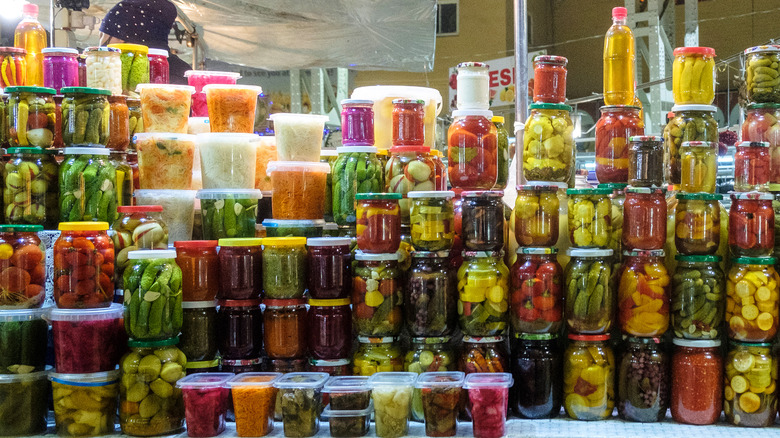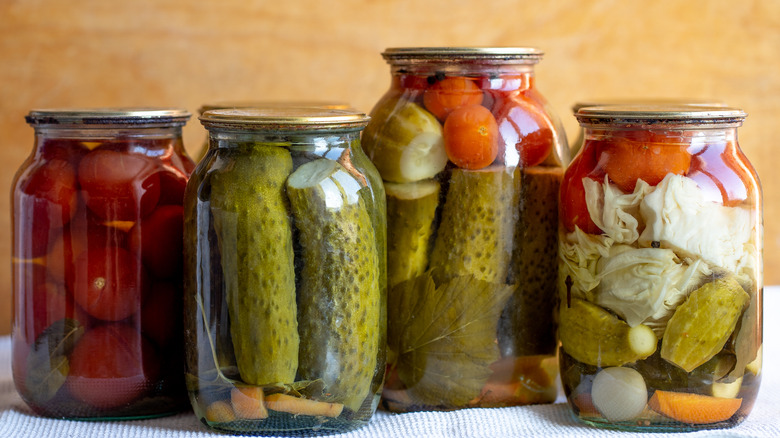Why You Should Start Keeping Pickled Vegetables In Your Pantry
A well-stocked pantry is almost like a superpower. Crafty and resourceful cooks know that a full array of ingredients can be the secret weapon for many different meals. This doesn't just mean things you can buy at a store, it also includes things you create yourself. You can stock your kitchen with all kinds of home-canned goods, DIY spice blends, and even things like homemade hot sauce. If you're new to the world of home preserving, refrigerator pickles are a fantastic first step.
In their most basic form, quick pickles are just a type of veggie soaked in a vinegar brine (via Cookist). This means there's lots of room for creativity and a million different flavor combinations: "The process works with so many ingredients. Beyond the classic cucumbers, other fruits, and vegetables that work well," reports Epicurious. Besides the obvious benefit of eating a delicious snack, there are several great reasons to start your foray into the world of quick-pickled vegetables.
Pickling can stretch your produce and extend their season
Quick pickling veggies is a great way to save any produce that might be on its way out. Prevention says, "One way to make your fresh veggies last longer is to pickle them." A quick pickle can also prevent food waste and prolong your access to seasonal produce. Southern Exposure Seed Exchange says, "Pickling vegetables is a great way to store the season's excess. Learning to incorporate these pickles into meals can help you make the most of your harvest." This way, you can always have veggies on hand even when you can't find them at the farmer's market (via Cookist).
All kinds of veggies (and fruits!) are great for quick pickling: If you're looking for a place to start, Chef Adriano Venturini of Eden Roc Cap Cana told Prevention, "I recommended pickled root vegetables. These store well for long periods. Vegetables like turnips, beets, radishes, and celeriac can add an interesting flavor to dishes." But quick pickles aren't preserved the way that their fermented brothers are, so it's essential to store them in the refrigerator rather than in the pantry itself (via Cookist). And make sure to eat homemade pickles within a month or two, says Taste of Home.

